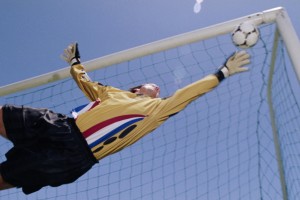Picture this for a moment: you’re on stage – bright lights beaming toward you – you hear the introduction by the orchestra or piano, and you think, “But I’m not ready yet! I don’t know this piece!” You wake up in a cold sweat, relieved that it was just a dream.
These vivid anxiety dreams are all too common before a performance, and they reveal an underlying, understandable fear that many musicians have: that you are not or will not be ready. Despite hours, weeks and even years of preparation and study of your instrument and the music in question, you still shiver with apprehension at the prospect of a big performance or audition. This is when it’s time to take a mental leap and trust your preparation.
Remind yourself of the time you’ve spent and the care you’ve taken with the music. Picture yourself in the practice room. Maybe even go all the way back to your early music lessons, and see the time and effort you’ve put in since then.
Sometimes all you need is a gentle reminder. Recently, one of my students, who is ten or eleven years old, came to me nervously just before a student recital. “Can I use the music?” she asked.
“N., how have you been practicing?” I asked.
“By memory.”
“And remember how great you played, by memory, in your last lesson?”
“Yes…”
In the end, she DID perform by memory and played beautifully. I think she just needed a reminder to trust her preparation.
It’s funny that, no matter what, I always wish for more time before a performance. I think, “If I only had one more month…” But I’m sure that, even if I DID have an extra month or two to prepare, I’d say the same thing! There comes a time when the preparation phase is over, and it is time to go out and do it. You’ve done the work. Now trust your preparation.



